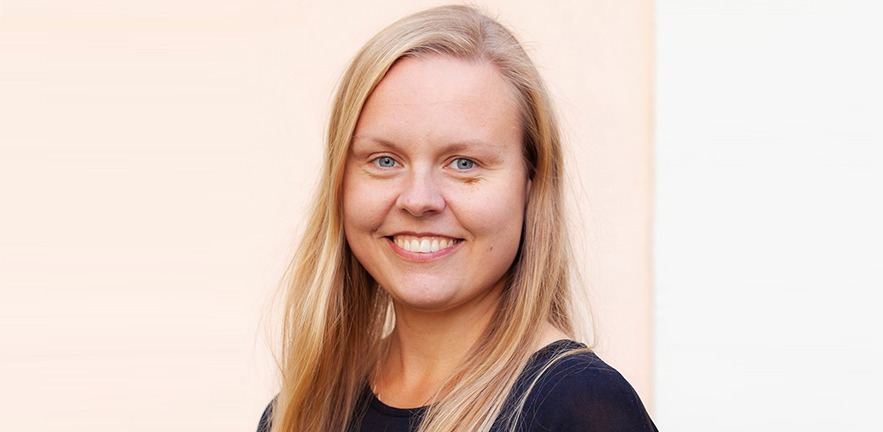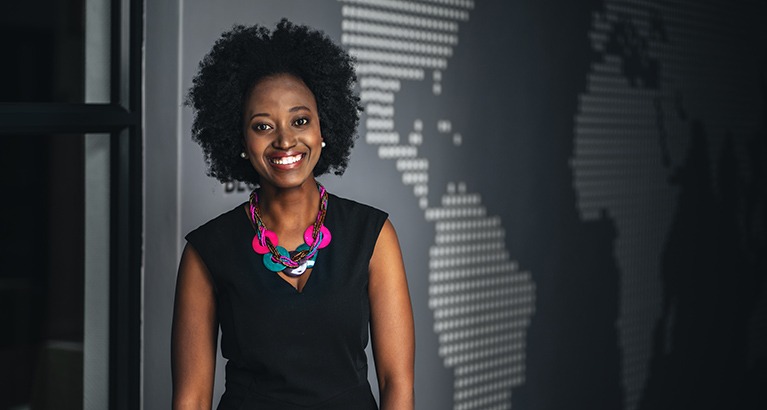The theme of class divide has been well documented in popular culture, often in a fish-out-of-water formula such as the musical My Fair Lady. But what’s it really like to be a working-class person thrust into elite institutions such as top banks and consulting firms in the City of London, London’s financial district?
That’s the topic of a paper to be presented this summer to the Academy of Management’s annual conference by Sandra Ool, a recent graduate of the Masters in Social Innovation programme (MSt 2020) at Cambridge Judge Business School, based on her dissertation that was named her class’s Best Dissertation Paper.
Study tracks people’s careers over decades to map changes
The study examines working-class individuals’ careers in the City of London over many years and sometimes decades – a departure from the short-term encounters often depicted in popular culture and previous research, which found little potential for institutional disruption to class-based organisational structures.
Sandra’s paper finds, instead, that while some working-class individuals suffer culture shock and self-eliminate from positions in elite institutions, for many others there is a far more nuanced relationship between working-class identity and elite institutional norms. The paper shows the potential for ‘class-destroying work’ through lifelong crafting of working-class people.
“I move away from the fleeting nature of cross-class encounters by taking a holistic view of people’s careers,” Sandra says in her thesis. “By looking at people’s careers in length, I reveal how working-class people can generate agency and engage in institutional change through identity work.”
Sandra Ool comes from a working-class background in Estonia
Sandra Ool is herself from a working-class background on a small island in Estonia, Saaremaa, where her father was a taxi driver and her mother a seamstress. She studied Management and Strategy at Aston University in England and then landed a job as a management consultant at professional services firm EY. While Sandra acknowledges that her experience as a foreigner was different from those of working-class Britons, she immediately recognised the class divide at work in the City of London.
“I found myself in an environment I did not understand. There were many awkward moments as I had never eaten a fancy 3-course meal before, did not know how to network,” she writes in her thesis. “Designing this research gave me the excuse I needed to find others like me.”
The research is based on interviews with 11 people from working-class backgrounds in the UK, white and Asian, who work in London’s financial sector as bankers or consultants. The thesis also draws on documents including companies’ press releases and annual reports, which “provided insights into the official corporate messaging and a contrast to the lived experience of working-class people on the ground”.
Class shock comes in daily interactions, or micromoments
The study finds that many working-class people who enter elite institutions go through 3 stages as they undertake “nuanced journeys of self-discovery, confrontation, and compromise”:
- class shock
- class reconciliation
- class activism
The class shock comes as they notice class differences in daily interactions or ‘micromoments’, often during casual chats about shopping, travel and socialising – so much that some interviewees described their more privileged colleague as “others” and “those people”.
As one participant recalled about going to a work-related barbecue early in his career: “They asked how I would want my steak. I didn’t have a clue about rare, medium rare, well-done. Honest to God, I never felt poor until I joined the firm. I always remember that – how would you like your steak cooked? Not a f—— clue. Felt like an idiot.”
Others recalled assumptions about their hobbies and lifestyle, with one interviewee saying that a colleague was surprised by the fact that she had read the Emily Brontë novel Wuthering Heights.
“The feeling of not belonging made people question them being hired in the first place,” the paper says, so some people began finding ways to catch up.
Class reconciliation through growing confidence
But over time, class reconciliation kicked in: feelings of not belonging began to fade: confidence grew, people felt more mature in their own skin, and chose authenticity over “passing” as someone they really are not.
“Simply put, people stopped assuming others were better than them only because they had a privileged background.”
Class activism is the final stage
Finally, after reaching the ‘other side’ and having proved themselves in an elite institution, people’s personal struggles in earlier career stages “inspire them to act in the present” through class activism – “seeing themselves as agents of change both regarding their own careers as well as their organisational context”.
The paper concludes by proposing 3 steps that organisations can take to deal with class divide and issues that arise from it:
- incorporate class consciousness into their DEI (diversity, equity, and inclusion) agenda alongside gender, race, LGBTQ+ and disability, which raises the visibility of any class divide
- engage with their working-class colleagues to understand people’s lived experiences, which can help lead to a roadmap of change initiatives to dismantle unequal practices
- openly discuss and celebrate class as an identity, for example through vocal role models who have been proven to be a ‘persuasive tool’ to ignite change
Societal games: an eye-opener for Sandra Ool in secondary school
Sandra says that class didn’t really enter her consciousness as a small child, as “everyone was normal like me”. She then won a place at one of the country’s best secondary schools, in the Estonian capital of Tallinn, and “I realised that there are people who are very rich and have a different outlook on life”.
“I realised that I had no idea about this new world I was in. It made me feel really naïve and quite angry that it hadn’t occurred to me that there is this whole game being played in society. I had just always believed that if I did a good job I could do whatever I want and get whatever I want.”
The high school environment was not overtly hostile and she made good friends, Sandra recalls, “but there was an understanding that people had connections, knew how power works, how money works. It was the social power these people had and cultural awareness that made me feel I can’t compete with this.”
MSt in Social Innovation sparked new interests
When she got a job in financial services in London, a similar trend appeared, whereby her peers could navigate the environment much more comfortably thanks to their parents also working in the sector. “My colleagues knew how to talk to the firm’s partners, about holidays, hobbies and that sort of thing. I was told that I had to network, and I didn’t know what to do.”
Yet Sandra has moved up the ladder in the finance sector, and built a successful career in London and now in Stockholm. She enrolled in the Master of Studies in Social Innovation at Cambridge Judge Business School in 2020 to broaden her outlook.
“I studied management studies for undergraduate because that’s what my dad thought would give me a better life financially. Now that I’ve become more financially secure, I want to do something more meaningful. I want to write a book about the experiences of people like me, both personal reflections and broader research. I want to tell people’s stories.”
Featured research
Ool, S. (2023) “Rewriting our story: working-class people in elite institutions” Academy of Management





